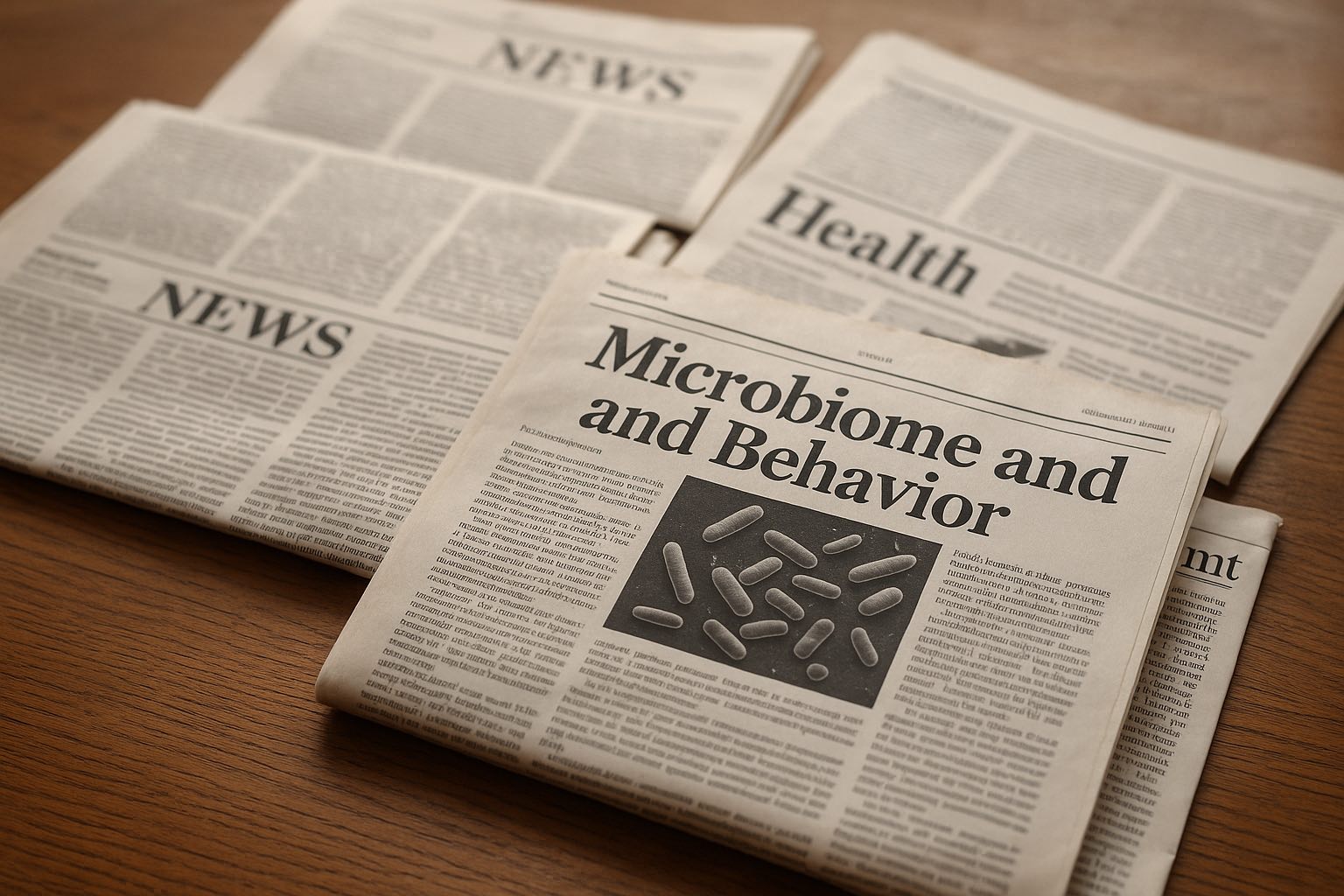The Gut Check: June 14, 2025
Welcome to this week’s Gut Check, your Friday roundup of the freshest microbiome news from the front lines of gut science, mental health, and spiritual well-being. These are the stories that caught our eye and stirred our inner terrain. Let’s dive in.
Gut Feeling, Strong Healing: Resilience Starts in the Microbiome
What if your ability to bounce back from stress had as much to do with your gut as it does your brain? A fascinating June 2024 study from UCLA Health has drawn a powerful connection between emotional resilience and the gut-brain axis. Researchers observed that people who managed stress more effectively had microbiomes that were rich in anti-inflammatory microbes and supported stronger gut barriers. At the same time, brain scans showed these individuals had more balanced activity in regions linked to emotion regulation.
The takeaway? Your gut and your brain might be collaborating more intimately than we ever imagined. These findings suggest that nurturing your microbiome could be a key pillar in building emotional flexibility and inner strength. Whether through diet, probiotics, or stress-reducing practices like meditation, taking care of your inner ecology might just be the most grounded path to personal growth. Read the study summary.
Pop a Probiotic, Brighten Your Mood
A clinical trial out of Leiden University (April 2025) brought some joyful news to the world of mental wellness: probiotics might be your new best friend. In just four weeks, participants who took daily probiotic supplements reported significant drops in anxiety, stress, and fatigue. The effects were visible within two weeks, suggesting the gut responds faster than we think when properly nourished.
The study also explored how the probiotics were working their magic. The answer lies in the vagus nerve, a major communication highway between your gut and brain. Probiotics helped reduce inflammation and supported vagal tone, which is key in regulating mood and emotional balance. For those looking for natural mood support, this study is a must-read.
Fermented Foods May Soothe the Mind
Kimchi and miso aren’t just flavorful. They might also be mood boosters. A March 2025 study published in EMBO Molecular Medicine found that fermented foods could reduce anxiety and improve mental health. In the study, probiotic-rich diets led to increased levels of GABA (a calming brain chemical) and better stress response in animal models.
What makes this exciting is how accessible the solution is. Fermented foods are easy to incorporate into daily meals, from sauerkraut to yogurt. They work by boosting your gut microbiota, which in turn influences neurotransmitters and inflammation levels in the brain. In a world full of stress, a forkful of kimchi might be more than a culinary delight. It could be part of your self-care ritual. Explore the findings.
Meditation Retreats Change the Microbiome
We’ve long known that retreats can transform your mind. New research suggests they may also transform your gut. A 2024-2025 study tracked participants at an intensive Arhatic Yoga retreat where the schedule included daily meditation and a plant-based diet. Within days, researchers observed major shifts in both gut and oral microbiota.
The increase in beneficial bacteria was associated with better gut barrier function and immune modulation. This offers compelling evidence that contemplative practices and diet can alter the microbiome in meaningful ways. For those seeking deep healing, it’s a reminder that your body listens and adapts to your inner environment. View the study details.
Your Gut on Probiotics: Brain Networks Rewired
Probiotics may be doing more than just helping with digestion. They could be altering how your brain processes emotions. A recent study observed healthy women who took probiotics for four to six weeks. Brain imaging revealed changes in activity in regions involved in emotion, memory, and decision-making, even when gut composition stayed largely the same.
This is a groundbreaking hint that probiotics might act through chemical messengers and nerve pathways rather than just through gut flora changes. For mental health practitioners and biohackers alike, this opens exciting doors for non-pharmaceutical mood support. See the research here.




0 Comments